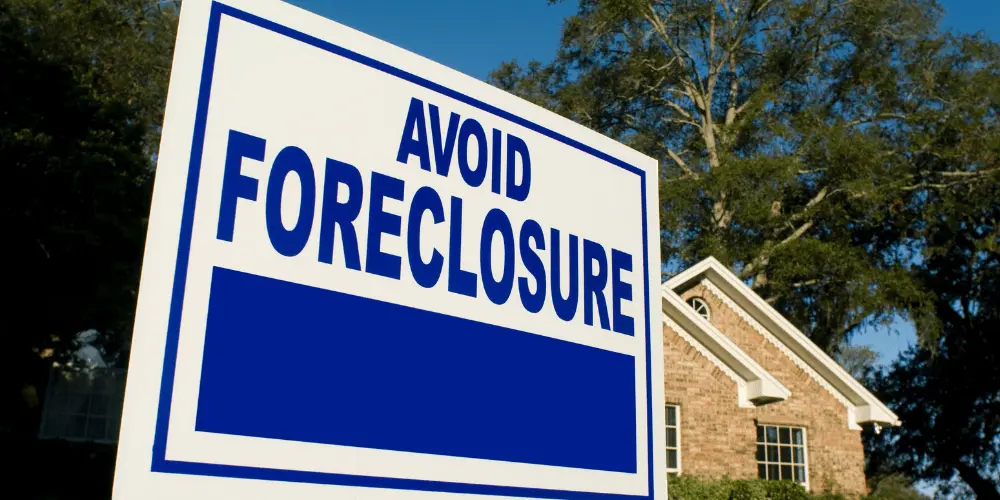
If you’re struggling to make your mortgage payments, you’re not alone. Many homeowners go through tough times and need help figuring out how to avoid foreclosure. One of the best steps you can take is to meet with a foreclosure prevention counselor. These professionals are trained to guide you through your options and help you protect your home.
In this article, we’ll walk you through what a foreclosure prevention counseling session looks like, what documents to bring, what you’ll talk about, and how it can make a big difference in your situation.
Housing counseling services are programs offered by nonprofit agencies, often approved by the U.S. Department of Housing and Urban Development (HUD). These services include everything from budgeting advice to help with avoiding foreclosure. The goal is to provide honest, helpful support for people facing housing challenges.
If you’re feeling overwhelmed, remember this: the sooner you reach out, the more options you’ll have.
Many counseling agencies are approved by the Department of Housing and Urban Development, which means they follow strict guidelines and receive federal training. These HUD approved housing agencies are not affiliated with any bank or lender.
HUD approved housing counselors are trained to help borrowers make the best decisions, not to sell you a product or steer you toward a specific loan. Learn more about them from the CFPB.
Housing counselors are trained and certified professionals who understand the foreclosure process, mortgage servicing rules, and borrower rights. Many of them work at HUD approved housing counseling agencies, and they’re required to follow strict ethical and educational guidelines.
They are on your side, not the lender’s. They’re there to assist homeowners, not judge them.
A housing counseling agency is usually a nonprofit organization that provides support services to homeowners, renters, and buyers. These agencies:
Some agencies also work directly with legal services or the court system in cases of judicial foreclosure.
A foreclosure prevention counseling session is a one-on-one meeting between a homeowner and a counselor who specializes in helping people avoid foreclosure. These sessions are confidential, often free or low-cost, and customized to your financial situation.
During the session, the counselor will help you understand:
Before your session, gather documents related to your home loan and income. Here’s a helpful checklist:
These documents help paint a full picture of your current status and support any application for a repayment plan, loan modification, or special forbearance.

Your financial situation is the foundation for every decision made during foreclosure prevention counseling. Before your counselor can recommend any options, they need a clear picture of your income, expenses, debts, and assets.
Many people worry they need to “clean up” their finances before speaking to a counselor, but that’s not necessary. Whether you’ve missed one mortgage payment or are already behind on your mortgage loan, it’s better to start the conversation early.
Here’s how your financial information helps:
Make sure to bring:
Failing to document your current status can lead to delays, mistakes, or missed opportunities. And if your housing costs have significantly increased—perhaps due to an escrow shortage or adjustable rate change—that should be shared, too. These changes can help demonstrate hardship and risk of foreclosure.
Even if you feel like things are out of control, know that your counselor has worked with many people in more serious trouble. Don’t let fear stop you from taking the first step.
Even if your first mortgage is the only loan on your home, falling behind can trigger serious consequences. Some homeowners stop paying because they feel hopeless, but doing so without a plan is risky. If you’re behind but still trying to keep your mortgage current, a counselor can help you build a strategy that fits your income and goals.
The Federal Trade Commission warns that borrowers who are behind on bills like car loans may be more vulnerable to foreclosure scams. If you’re in trouble making multiple payments each month, talk to a nonprofit counselor who can help you prioritize debts and stay away from dishonest offers.
If you’ve received any legal papers related to your mortgage, don’t ignore them. These documents may include notices of default or court dates tied to the foreclosure proceedings. The exact steps and deadlines depend on your state’s foreclosure laws, so it’s important to understand what each notice means and how much time you have to respond.
Once you’re in the meeting (in-person, by phone, or online), the housing counseling agency staff will guide you through a few key steps:
One of the biggest challenges homeowners face is talking to their mortgage company. A housing counselor can:
They may even speak directly to the loan servicer on your behalf.
If you’re not sure what to say or when to reach out, read our free hardship letter guide.
Many people try to go it alone, but working with a foreclosure prevention counselor can give you a much better chance at saving your home. In fact, HUD research shows that people who work with a counselor are more likely to reach a successful resolution.
They can:
They are trained to recognize predatory lending, uncover red flags in loan documents, and explain what your lender is legally required to do.
If you’ve heard the term loss mitigation, it simply refers to options that help both the lender and the borrower reduce loss during delinquency. A counselor will help you identify your available loss mitigation options and assist with the loss mitigation application process.
Most lenders will not begin the review until all documents are submitted, and a counselor can help you stay organized and timely.
HUD’s official loss mitigation resource page outlines additional options for borrowers in default.
When you meet with a counselor, they’ll walk you through multiple foreclosure prevention options. These may include:
Each option has pros and cons, and not all are available to every homeowner. The counselor will help you decide which option fits your financial situation and goals.
Learn more about how loan modifications work.
If your state offers a mediation process, a HUD certified housing counselor may be able to attend with you or prepare you beforehand. Mediation gives you a chance to talk with your lender and find a solution, and having the right support makes a big difference in the outcome.
In some states, foreclosure cases involve mediation between the homeowner and lender. A housing counselor can:
Even outside of formal mediation, your counselor can assist with back-and-forth communication, document tracking, and lender responses.
The National Housing Conference offers insight into the role of mediation and legal aid in avoiding foreclosure.
In some states, lenders don’t need to go to court to take your home. This is called a non judicial foreclosure, and it moves quickly. If you live in one of the non judicial foreclosure states, it’s especially important to act early to prevent foreclosure. A counselor can help you understand your rights and timelines.
Sadly, scammers target struggling homeowners. If someone asks you to pay upfront fees or guarantees they can stop your foreclosure, be cautious.
A legitimate housing counseling agency will:
Work only with agencies approved by housing and urban development, and report suspicious offers to the Consumer Financial Protection Bureau.
When your session ends, you’ll leave with a clear plan of action. That may include:
Some homeowners resolve their issues in just one session. Others stay in contact for weeks or months, especially if a loan modification is being reviewed.
Even if staying in your home isn’t possible, there are still foreclosure alternatives that can protect your credit and give you time to move. Your counselor will help you discuss options like a short sale or deed in lieu: paths that are less damaging than full foreclosure.
Sometimes, despite your best efforts, keeping the home may not be realistic. In those cases, a counselor can help you:
Even in the worst-case scenario, you don’t have to face it alone.
The U.S. Department of Housing and Urban Development funds many local agencies offering free or low-cost foreclosure counseling. These services are available in every state and serve homeowners from all walks of life.
By working with an approved housing counseling agency, you’re gaining access to tools, support, and information designed to give you a fair chance to keep your home.
Find a HUD-approved foreclosure prevention agency near you.
If you’re behind on your mortgage or struggling to make ends meet, don’t wait. The sooner you meet with a foreclosure prevention counselor, the more likely you are to save your home, or find a smart, supported path forward.
A counseling session is private, pressure-free, and focused on you. You’ll learn what options are available, how to apply, and what steps to take right now to improve your situation.
Connect with Credit.org’s foreclosure assistance services today.